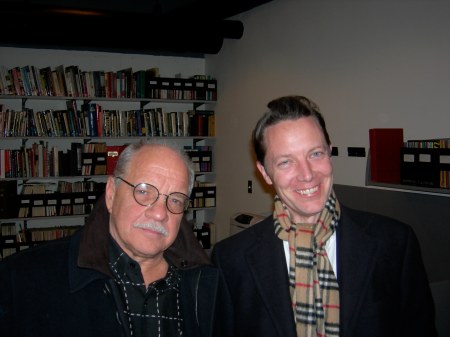Inglourious Basterds was among the many movies I missed during my time away from the daily reviewing grind. I finally caught up with it on DVD (review here), but as usual I’ve got a few more thoughts to share.
1. Eli Roth may be the absolute worst screen actor I’ve ever seen. I Know QT likes casting his buddies, some of whom can actually deliver. And yet: wow. All Roth really had to do here was bash a dude’s skull with a baseball bat and not make us cringe. Mission half accomplished.
2. Basterds is QT’s talkiest effort outside of Kill Bill 2. But in between films he seems to have learned how to pace the yakking. The opening scene with Waltz is a keeper, but I actually prefer the tavern sequence in the middle of the film. The tension comes from multiple directions and ends up being far more complex. Great stuff.
3. Oddly enough enough I would have enjoyed Basterds more without the actual Basterds. So you get a bunch of rogue Jews who like to scalp Nazis (and one who swings a mean Louisville Slugger). Kind of a funny idea. And that’s about all it is. Is there supposed to be something righteous about gruesomely annihilating faceless Nazis? Nazis are bad. I get it. But I can’t remember a recent film with such hollow sadism. Then again, Eli Roth is in it.



 Posted by Chris Vognar
Posted by Chris Vognar 